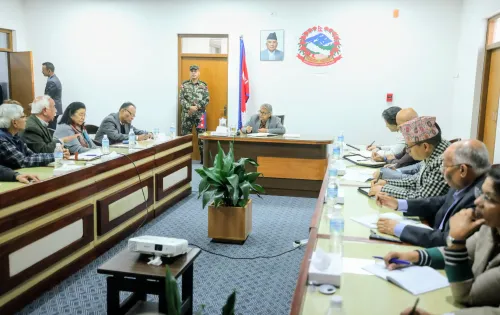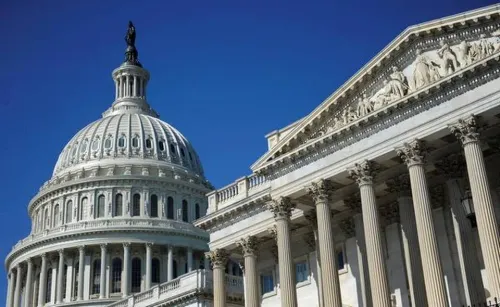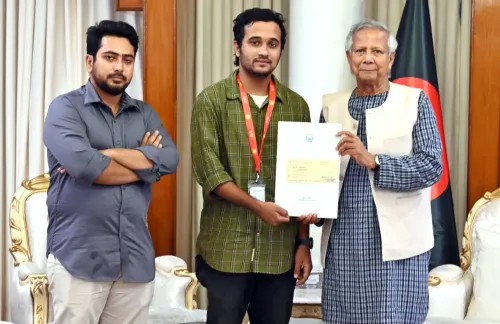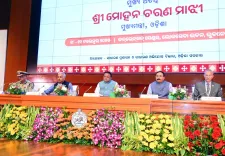Is the 27th Amendment Unconstitutional According to JUI-F?
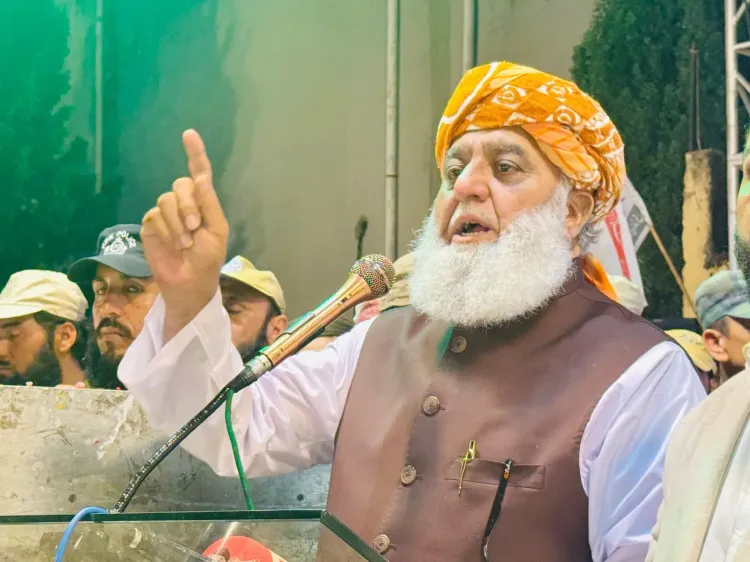
Synopsis
Key Takeaways
- JUI-F condemns the 27th Amendment as unconstitutional.
- Nationwide protests are ongoing against the amendment.
- Concerns raised about the implications for democracy in Pakistan.
- Political factions are mobilizing to voice their dissent.
- Human rights and freedom of expression remain significant issues.
Islamabad, Nov 19 (NationPress) The Jamiat Ulema-e-Islam-Fazl (JUI-F) faction in Khyber-Pakhtunkhwa has harshly condemned the 27th Constitutional Amendment, referring to it as a "conspiracy against the Islamic Constitution" and detrimental to national interests, as reported by local media on Wednesday.
During a provincial executive committee meeting in Peshawar, the party voiced its disapproval. Senator Maulana Attaul Haq Dervish, the provincial General Secretary, remarked that the 27th Amendment was approved without adhering to legal and constitutional protocols, according to the Pakistani daily 'The Express Tribune'.
Senator Maulana Attaur Rehman, the Provincial Ameer, claimed that the amendment was passed "under pressure", highlighting that sections removed by the 26th Amendment had been reinstated. The JUI-F provincial executive unanimously denounced the 27th Constitutional Amendment, labeling it "unconstitutional".
Numerous political entities across Pakistan have been protesting against the 27th Constitutional Amendment Bill, which was sanctioned by President Asif Ali Zardari on November 13, having earlier been approved by both parliamentary houses. Following its endorsement, the bill is now integrated into the constitution.
The joint opposition alliance, Tehreek Tahaffuz-e-Ayeen-Pakistan (TTAP), organized a protest march from the Parliament House to the Supreme Court in Islamabad on Tuesday. Alliance leaders declared their intention to observe a nationwide 'Black Day' on Friday, protesting what they term as “ongoing constitutional violations” in Pakistan.
In statements to the press, TTAP member Allama Raja Nasir Abbas asserted that the march was an expression of their dedication to the “protection” of the Constitution. He stated, "We walked from parliament to the Supreme Court to emphasize the closure of all avenues of justice for the people of Pakistan," as reported by Pakistan-based Geo News.
Allama Abbas critiqued the environment of suppressed freedom of expression in Pakistan. "People have been silenced, fundamental human rights are being violated, and we will not remain quiet as long as we live," he remarked.
Earlier on Monday, members of the Pakistan Tehreek-e-Insaf (PTI) staged a protest from the Punjab Assembly to Charing Cross, opposing the 27th Constitutional Amendment.
After submitting a requisition at the Punjab Assembly for a debate on the 27th Amendment, PTI MPAs, led by the party’s secretary-general Salman Akram Raja, marched with flags and placards stating, "We reject the 27th Constitutional Amendment".
During the protests, Salman Akram Raja condemned the amendment, asserting that the judiciary had been targeted and that a compliant judiciary could not represent the interests of the marginalized, according to Pakistan's leading daily Dawn.
On November 16, activists from the Pakistan Awami Tehreek (PAT) and its women's wing, Sindhiyani Tehreek (ST), protested against the 27th Constitutional Amendment, corporate farming, the construction of new canals on the Indus River, honor killings, and the exploitation of Sindh's resources.
The PAT's march commenced at Jail Road and concluded at the local press club, where various leaders addressed participants. PAT President Vasand Thari described the 27th Amendment as “worse than the post-hybrid system and an attack on democracy.”

